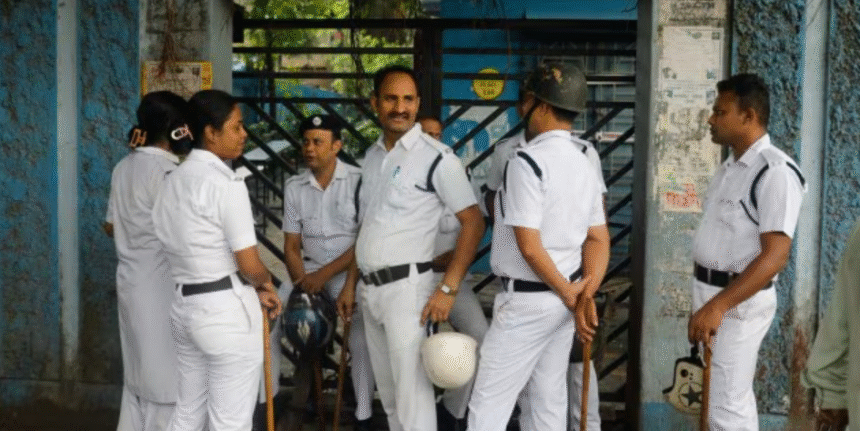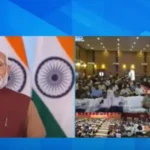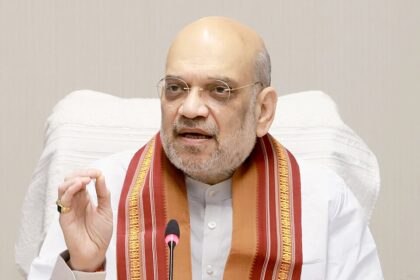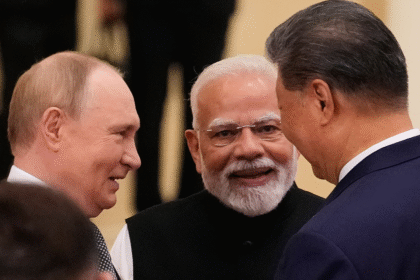Kolkata Woman Alleges Rape by Student at Premier Educational Institution
Kolkata, a city long regarded as a bastion of education, culture, and progressive ideals, was shaken in mid-2025 by a disturbing allegation that pierced through the veneer of academic respectability. A woman came forward to file a police complaint, accusing a male student from a premier educational institution of rape. The allegation, made public in July 2025, has sparked widespread outrage, concern, and soul-searching—within academia, law enforcement, and society at large.
The incident, reportedly involving a survivor in her twenties and a student of one of Kolkata’s most prestigious institutions, has led to a full-fledged police investigation, public protests, debates around campus safety, and questions about institutional response. While the legal proceedings remain in early stages, the broader implications are already unfolding: from the effectiveness of internal complaints committees (ICCs) to the cultural stigma that continues to silence many survivors in educational spaces.
In this ten-part, professionally crafted long-form investigation, we will unpack the layers of this case—not just in terms of legal detail, but through a broader lens of institutional accountability, gender dynamics, student culture, and systemic gaps in how such cases are handled in India’s academic ecosystem.
The Allegation: What We Know So Far
According to the FIR filed with the Bidhan Nagar police, the complainant has accused the student of sexually assaulting her at a location inside the campus premises. She claims the assault occurred after the accused gained her trust over several weeks and lured her under false pretenses to a private area, where he allegedly forced himself on her despite repeated resistance.
The survivor stated in her complaint that no consent was given at any point, and that she was in a vulnerable emotional and physical state due to manipulation, coercion, and fear. The FIR was registered under Section 376 (rape) of the Indian Penal Code (IPC). Police officials confirmed that an investigation is underway, and the accused has been summoned for questioning.
Initial medical examination reports were conducted at a government hospital, and the police also sought digital evidence, including phone records, chats, and CCTV footage from the institution’s premises. Meanwhile, the educational institution released a brief statement acknowledging the seriousness of the matter and claiming full cooperation with law enforcement.
Institutional Response: A Balancing Act Between Duty and Damage Control
The unnamed institution, which has often been in national rankings for academic excellence, found itself navigating a delicate and high-stakes situation. On one hand, reputation management was clearly in play; on the other, mounting public and media pressure forced the administration to issue statements affirming their commitment to a fair and just inquiry.
But critics argue that such statements ring hollow unless backed by transparent internal action. Questions immediately arose regarding the Internal Complaints Committee (ICC)—Was it functional? Did the survivor attempt to approach it? If so, what response did she receive? As of this writing, the institution has not made public any internal report, nor has it clarified whether the accused student has been suspended pending inquiry.
Several student groups have voiced disappointment at the administration’s lack of proactive communication, calling for open town halls, third-party involvement in the investigation, and psychological support for survivors of assault and harassment.
Survivor’s Stand: The Courage to Speak, the Risk of Retaliation
In India, filing a rape complaint is an act of extraordinary courage, especially when the alleged perpetrator is someone known personally, and even more so in closed ecosystems like college campuses. Survivors risk social ostracization, online harassment, academic backlash, and at times, even physical threats. In this case, the survivor’s name and details were kept confidential in accordance with law, but trolls on social media attempted to unearth her identity and spread misinformation.
Women’s rights organizations have rallied behind the survivor, praising her for choosing to report and reminding society that reporting is not revenge—it’s reclamation. A joint statement by several women’s collectives in Kolkata demanded zero-contact conditions between the survivor and the accused, swift legal proceedings, and a high-level institutional review of grievance mechanisms.
Legal Proceedings Begin: The Long Road Ahead
After registering the complaint, the Bidhan Nagar police station has initiated a criminal investigation. The accused student’s statement has reportedly been recorded, and his mobile device seized. Forensic reports are awaited, and the next steps will involve witness statements, a psychological assessment of the survivor, and, if sufficient evidence is found, framing of charges under the IPC.
The case will most likely be transferred to a designated fast-track court for crimes against women, but legal experts caution that despite the Nirbhaya Act reforms, rape trials in India can still stretch over months or years, depending on the complexity of evidence and courtroom backlogs.
Meanwhile, the question remains—will the survivor receive adequate legal and emotional support throughout? And will institutional support be sincere or merely symbolic?
Campus Conversations: The Silence, the Fear, and the Awakening
Across campuses in Kolkata and beyond, this incident has reignited difficult conversations around consent, safety, and accountability in student life. Whispers of similar incidents in the past—unreported or buried—have resurfaced. Students and faculty members are demanding that institutions stop hiding behind rankings and start addressing toxic masculinity, informal power dynamics, and gaps in reporting mechanisms.
Workshops, protests, and student-led counseling initiatives have emerged in the aftermath, with many now calling for:
- Mandatory gender sensitization training for all students and staff
- Functional and independent ICCs in every academic institution
- Mental health support networks for survivors
- Public reports on how complaints are handled internally
- Stronger penalties for false counter-accusations, often used to intimidate survivors
A Mirror to Academia, a Moment for Reckoning
This case is not just about one alleged incident of sexual assault. It is about the invisible structures that allow such incidents to occur, persist, and be silenced. It is about the failure to create safe learning environments, the institutional impulse to protect brand image over human dignity, and a culture that makes victims fight twice—once against the perpetrator, and once against the system.
As we move into the next part of this investigative series, we will explore the history and legal framework of sexual harassment and assault laws in India, how they apply to educational institutions, and whether they truly serve survivors in practice.
The painful truth at the heart of the Kolkata campus rape case isn’t just the crime alleged—it’s the systemic gaps that survivors must navigate once they step forward. While India’s legal framework for dealing with sexual assault has evolved significantly over the last two decades—particularly after the Nirbhaya movement of 2012—it still struggles with enforcement, accessibility, and institutional cooperation when it comes to complaints originating in academic environments.
In Part 2 of this in-depth series, we examine the intersection of Indian criminal law and campus policy. What happens after a complaint is filed? Who is responsible for ensuring justice and safety? And how does India’s legal and institutional architecture help—or hinder—survivors in higher education?
The Legal Foundation: IPC Sections, CrPC, and POCSO (Where Applicable)
In the Kolkata case, the First Information Report (FIR) was registered under Section 376 of the Indian Penal Code (IPC), which defines the offence of rape and outlines its legal consequences. Section 376 prescribes rigorous imprisonment for not less than 10 years, which may extend to life, along with fines.
Additional legal provisions that may apply depending on the circumstances include:
- Section 354 (assault or criminal force to woman with intent to outrage her modesty)
- Section 506 (criminal intimidation)
- Section 509 (words or gestures intended to insult the modesty of a woman)
- Section 34 (acts done by several persons in furtherance of common intention) – in case others were complicit
These are criminal provisions governed by the Code of Criminal Procedure (CrPC). Once an FIR is filed:
- The police begin investigation
- The survivor undergoes medical examination (Section 164A of CrPC)
- The survivor may give a statement before a magistrate (Section 164 of CrPC)
- The accused may be arrested, interrogated, and if necessary, remanded to custody
- Charges are framed and the case is transferred to Sessions Court or Fast-Track Court
In cases involving minors, Protection of Children from Sexual Offences (POCSO) Act also applies. In this particular case, both the survivor and the accused are adults, so POCSO is not invoked.
Institutional Responsibility: The Mandate of ICCs Under UGC Guidelines
In parallel with legal proceedings, every higher educational institution in India is bound by University Grants Commission (Prevention, Prohibition and Redressal of Sexual Harassment of Women Employees and Students in Higher Educational Institutions) Regulations, 2015. Under these guidelines:
- Institutions must constitute an Internal Complaints Committee (ICC) under the Sexual Harassment of Women at Workplace Act, 2013
- The ICC must consist of a presiding officer (female), two faculty members, one external expert, and a non-teaching staff representative
- Complaints must be resolved within 90 days, with written reports submitted to the university and UGC
- Confidentiality must be maintained, and no retaliatory action can be taken against the complainant
- If the ICC finds merit, disciplinary action, including expulsion or termination, may be recommended
In the current case, the institution in question has not publicly disclosed whether the ICC has been engaged, raising questions about procedural compliance and institutional transparency.
The Disconnect: Why Campus Survivors Hesitate to Use ICCs
Despite being mandatory, ICCs often remain dysfunctional or mistrusted. Research and media investigations over the years have shown why survivors hesitate to approach them:
- ICCs often include faculty who are not sensitized or trained to handle trauma
- Many committees fail to meet regularly or are under pressure from senior administration
- Survivors worry about breach of confidentiality, academic repercussions, or even being failed in internal exams
- In some cases, institutions have dismissed complaints citing ‘lack of evidence’ even before a thorough probe
- External members are either not present or treated as mere formalities
In essence, ICCs are designed to be fast, internal, and survivor-focused—but in practice, they are often bureaucratic, intimidating, or biased, especially when the accused has political, financial, or institutional influence.
Legal Representation and Support: Who Helps the Survivor Navigate the Maze?
Unlike in the U.S. or Europe, India has no mandatory Title IX-style office within universities that guarantees legal counsel, psychological support, and housing relief to sexual assault survivors.
In most cases, the complainant must rely on:
- Legal aid clinics (if present) within the university
- External NGOs and women’s rights groups
- Free legal aid under Article 39A of the Constitution (if economically eligible)
- Sympathetic faculty or student unions
This fragmented approach places a huge burden on the survivor, who must coordinate legal, medical, academic, and emotional needs while also facing societal judgment.
In the Kolkata case, women’s rights organizations have stepped in to help the survivor access counseling and secure legal representation, but this is an exception, not the norm.
The Role of Law Enforcement: Between Protocol and Pressure
The Bidhan Nagar police’s swift registration of the FIR and follow-up action reflect an important procedural shift: police cannot now refuse to file rape complaints. After the 2013 Criminal Law Amendment Act, refusal to register a sexual assault FIR is itself punishable.
That said, law enforcement still faces multiple criticisms:
- Lack of forensic sensitivity during medical examination
- Police officers often ask leading or inappropriate questions that retraumatize survivors
- Delays in collecting digital evidence or questioning the accused can weaken the case
- Socio-political pressure from elite institutions or influential families sometimes leads to soft-pedaling investigations
To counter this, the Supreme Court and High Courts have laid down mandatory SOPs for rape investigations, including timelines for medical examination, digital forensics, and statement recording. However, implementation remains inconsistent across jurisdictions.
Due Process vs. Social Justice: The Clash of Narratives
As with any high-profile sexual assault case, the tension between ‘innocent until proven guilty’ and the need to believe survivors resurfaces in public debate. On one side are civil libertarians who demand a cautious, evidence-backed approach to avoid wrongful conviction. On the other side are feminist groups who argue that systemic bias already stacks the deck against survivors, and therefore, proactive institutional and legal empathy is essential.
What gets lost in this ideological crossfire is the survivor’s lived experience—her right to safety, dignity, and fair trial without character assassination or gaslighting.
This is why legal reform alone is not enough. We need cultural reform, including:
- Judicial training in trauma-informed handling of cases
- Sensitization for college deans, professors, and student mentors
- Reform in media reportage, avoiding sensationalism and survivor-blaming
Laws Exist, but Do They Empower?
India’s criminal statutes and regulatory frameworks to handle sexual assault are robust on paper. But in the real world of elite campuses, patriarchal conditioning, and institutional risk aversion, they often fall short of serving the very people they were created for.
The Kolkata case illustrates how legal frameworks—no matter how well-intentioned—can only be as effective as the systems that operationalize them. If ICCs fail, if college administrations remain opaque, and if survivors remain unsupported, justice becomes procedural, not restorative.
When allegations of sexual assault emerge from elite educational institutions, they often trigger a dual crisis: one that revolves around justice for the survivor, and another that involves the preservation of institutional reputation. In such cases, the accused is not merely an individual, but a symbolic extension of the institution’s meritocratic promise—its prestige, values, and carefully cultivated public image.
In Part 3 of this long-form series, we explore the profile of the accused, the response of the institution thus far, and the broader issues of privilege, protectionism, and institutional culture. We look at how campuses, particularly premier ones, often default to damage control rather than transparency—and why that must change if India’s higher education spaces are to be genuinely safe and inclusive.
Who Is the Accused? What Is Known So Far
While the identity of the accused remains confidential for legal reasons at this stage of the investigation, early media reports and statements from the survivor’s legal team suggest that the accused is:
- A final-year postgraduate student, pursuing a degree in a professional discipline
- Known for his academic record, extracurricular involvement, and visibility within student circles
- Part of multiple student-led initiatives and committees, which gave him institutional proximity to faculty and administrative staff
This background paints a familiar pattern in sexual assault cases within academia, where the accused is often not a social outlier, but someone seen as “promising,” “respectable,” or “too smart to do something like this.” These preconceived images can blur objective scrutiny and tilt sympathy toward the accused, especially if they belong to dominant social, economic, or cultural groups.
The ‘Model Student’ Problem: When Reputation Protects Wrongdoing
Many survivors, when speaking out against well-known or high-achieving peers, encounter the same wall of disbelief: “But he’s such a good student.” This cultural bias is not incidental—it is deeply structural.
Several studies across India, the U.S., and Europe show that perpetrators of campus sexual violence often:
- Occupy positions of informal influence or leadership
- Have institutional access to decision-makers
- Use charm, intellect, or cultural capital to manipulate perception and silence dissent
- Are protected—explicitly or subtly—by faculty or mentors who see them as “their own”
This reality creates an ecosystem where survivors must not only recount traumatic events but dismantle an entire narrative of presumed innocence and excellence around their alleged abuser.
In the Kolkata case, early signs of this trend have emerged. Some student groups, while stopping short of direct defense, have urged “restraint” and “balanced discourse”—a coded way of expressing skepticism about the complaint without sounding hostile. Meanwhile, faculty members close to the accused have reportedly called for “not rushing to conclusions.”
The Institutional Dilemma: Safety vs. Brand Management
For institutions, rape allegations can create PR nightmares—especially in an era where college rankings, international partnerships, and alumni donations are influenced by public perception. As a result, administrations often shift from student-focused protection to reputation-focused crisis management.
In this case, the institution responded with a generic public statement, promising “cooperation with authorities” and “a commitment to safety and justice.” However, there has been no public information about whether:
- The accused has been suspended from campus or classes
- The ICC has launched a parallel internal inquiry
- The survivor has been offered alternate housing, academic flexibility, or legal guidance
- Students and faculty have been sensitized about how to support the process without interference
This lack of transparency has provoked strong reactions from women’s collectives, who argue that administrative neutrality in cases of sexual assault is a form of complicity.
Privilege as Protection: When Power Silences Process
Privilege in campus settings operates in multiple dimensions: gender, caste, class, language fluency, academic standing, and sociopolitical access. When an accused person belongs to the upper echelons of these hierarchies, the institution often invests more in protecting their future than investigating the survivor’s past trauma.
Instances of this include:
- Refusal to issue suspension letters due to “academic loss”
- Faculty members offering character certificates or testimonials for the accused
- Administrators discouraging survivors from “tarnishing the institution’s name”
- Soft deflections such as “misunderstanding,” “relationship gone wrong,” or “both sides involved” narratives
In the Kolkata case, the accused reportedly has parental or family connections in the academic field, which may be contributing to internal hesitation about public action. While this remains unconfirmed, it reflects a well-documented trend of social connections influencing institutional response.
A Culture of Silence: Students Speak Out Anonymously
Even as the survivor’s complaint has forced the administration to confront uncomfortable truths, many students have started sharing their own experiences anonymously, revealing a deeper undercurrent of fear and silence.
Online message boards, student forums, and anonymous testimonies collected by student journalists suggest that:
- This is not the first time misconduct or harassment has occurred on campus
- Survivors often face peer retaliation, subtle academic punishment, or social isolation
- Some professors have historically discouraged reporting, saying “it will pass”
- Students fear that their grades, internships, or future recommendations could be impacted
This chilling effect has created what many call “the hidden syllabus of survival”—a set of unwritten rules female students must follow to stay safe: don’t be alone with male seniors, don’t attend off-campus events, don’t speak out unless absolutely necessary.
Why Institutions Must Act—And Be Seen Acting
The role of the educational institution in such cases is not to investigate the crime—that is the job of the police and courts. But the institution is the immediate ecosystem where the survivor lives, studies, and interacts daily. As such, it has a moral, academic, and legal duty to:
- Provide interim safety measures without waiting for legal verdicts
- Create environments that allow both due process and emotional dignity
- Prevent the accused from using influence to derail or delay investigations
- Publicly reaffirm a zero-tolerance stance, especially in elite spaces where denial is strong
This is not about declaring guilt prematurely. It is about recognizing that justice is not just a courtroom outcome—it’s also how an institution behaves when it matters most.
The Weight of Silence and the Burden of Action
The Kolkata case is not a story of two students alone. It is a story of how elite institutions negotiate discomfort, power, and accountability. Of how survivors must often speak louder just to be believed, while the accused benefits from a system designed to delay, doubt, and dilute.
In the next part of this investigative series, we will shift our focus to the survivor’s side of the journey: What happens after you file a complaint? How do you continue attending classes, facing whispers, navigating mental trauma, and dealing with a society that still doubts more than it supports?
Also Read : TMC Student Union Dominates Bengal College Polls Amid Opposition Concerns







